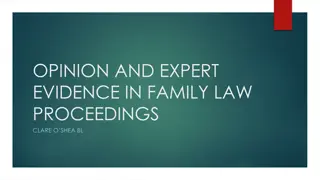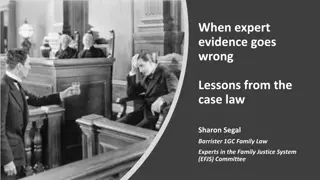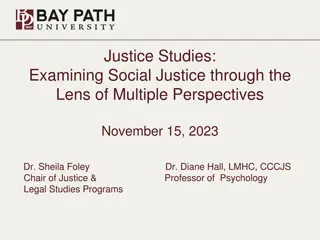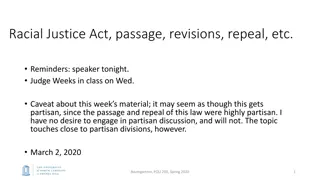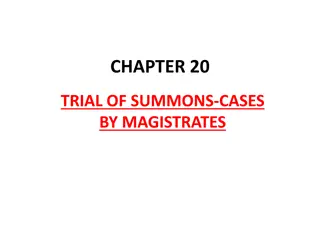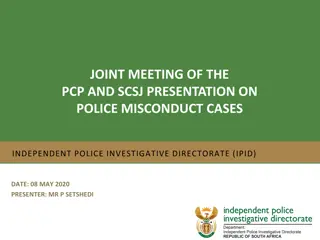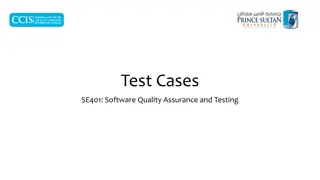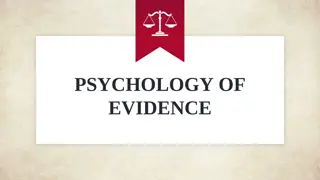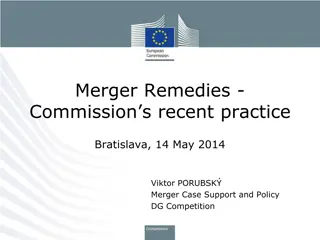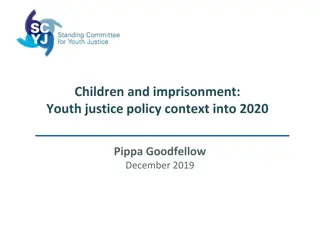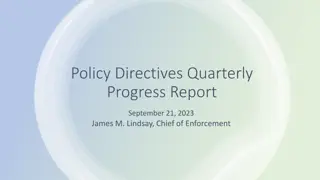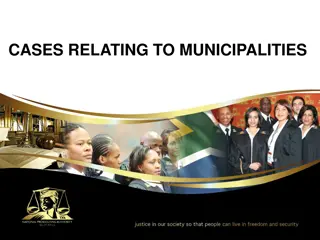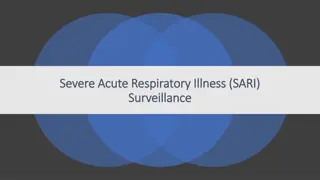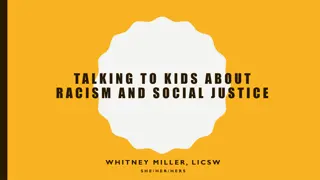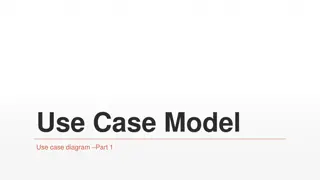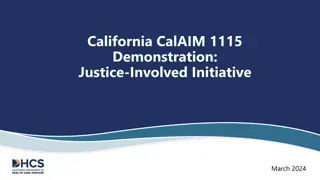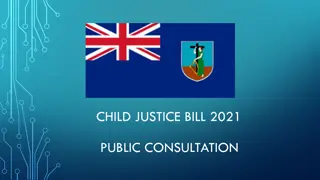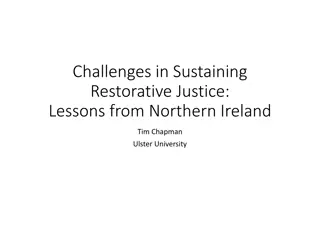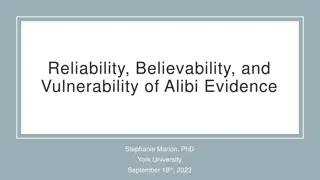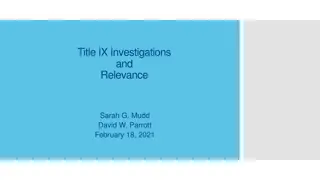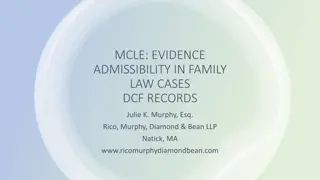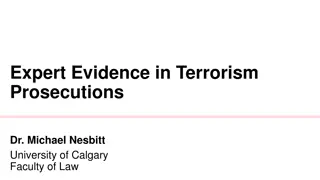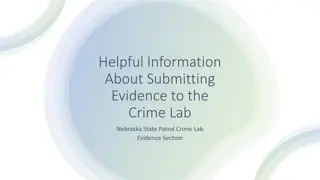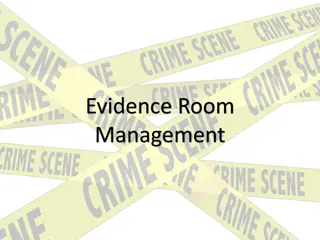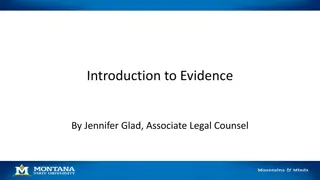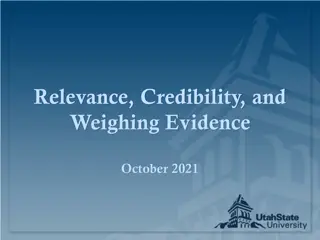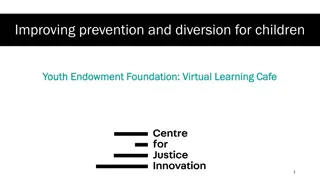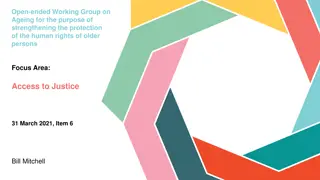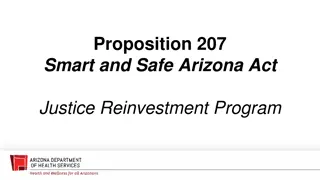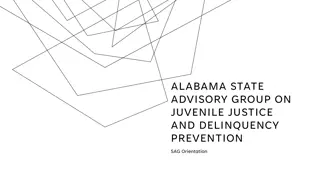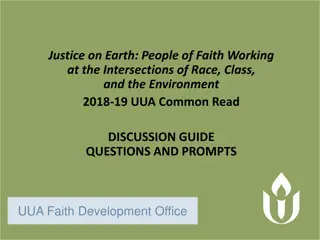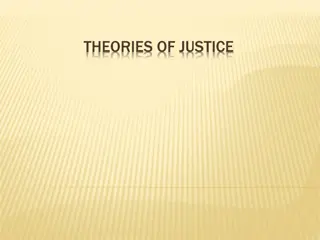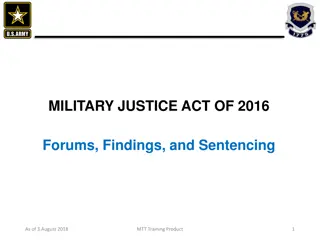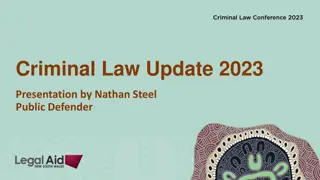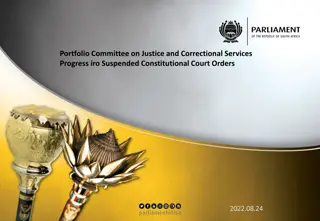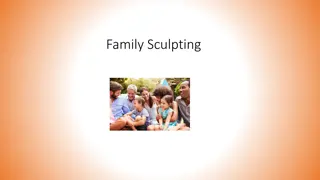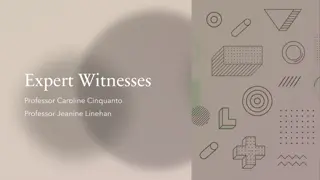Expert Evidence in the Family Justice System: Lessons from Recent Cases
Lessons from recent cases highlight the pivotal role of expert evidence in family law proceedings. Judicial findings emphasize the importance of a factual substratum supporting abuse allegations. Courts rely on expert testimony but judges ultimately decide based on the evidence presented. The relevance, expertise, and recent experience of experts play a critical role in shaping the court's decisions.
Download Presentation

Please find below an Image/Link to download the presentation.
The content on the website is provided AS IS for your information and personal use only. It may not be sold, licensed, or shared on other websites without obtaining consent from the author. Download presentation by click this link. If you encounter any issues during the download, it is possible that the publisher has removed the file from their server.
E N D
Presentation Transcript
Best evidence from experts: Lessons from recent cases Sharon Segal Barrister 1GC Family Law Experts in the Family Justice System (EFJS) Committee
Judicial findings of abuse can rarely if ever be made in isolation and on medical evidence alone: the factual substratum from which the allegations of abuse arise is usually of critical importance in an overall assessment of the case . Wall J , Re AB (Child Abuse: Expert Witnesses) [1995] 1 FLR 181
The court invariably needs and invariably depends upon the help it receives from experts in this field. The court has no expertise of its own, other than legal expertise. Another success of the Children Act has been the training, including and especially the training in related disciplines, which all judges receive. By their special allocation to this work, they acquire a body of knowledge which, strictly speaking, cannot be substituted for the evidence received, but which can be deployed to spot any weakness in the expert evidence. That is the judicial task. The expert advises, but the judge decides. The judge decides on the evidence. If there is nothing before the court, no facts or no circumstances shown to the court which throw doubt on the expert evidence, then, if that is all with which the court is left, the court must accept it. There is, however, no rule that the judge suspends judicial belief simply because the evidence is given by an expert . Ward LJ, Re B (Care: Expert Witnesses) [1996] 1 FLR 667
When expert evidence goes wrong 1. 2. 3. Expertise The dogmatic expert Factual errors
Expertise No expertise in the relevant issues before the court Not qualified Beyond their expertise No recent expertise
Expertise Re B and G (children) (No 2); Leeds City Council v M and others[2015] 1 FLR 905 Careful planning of the process of examination is required to ensure that an expert with the appropriate level of relevant expertise is instructed at the earliest opportunity . No expertise in the relevant issues before the court
Expertise Barts Health NHS Trust Applicant v Dance & Battersbee [2022] EWHC 2098 (Fam) Dr R s clinical experience although helpful it is of note he has not had direct experience in this area for 14 years . No recent expertise
Expertise Beyond their expertise
Expertise A Local Authority v S [2010] 1 FLR 1560 Cases involving an allegation of shaking are, inevitably, and necessarily, multi-disciplinary in their approach. It is, therefore, crucial that each expert keeps within the bounds of their own expertise and works in a collaborative way with the other experts in order to see if a diagnosis/cause can be reached. This means that each expert must defer to the expertise of others more qualified to comment on certain areas such deferral must be made not grudgingly or reluctantly, but in ready acknowledgement of the greater expertise and knowledge that the other specialists may have in relation to certain aspects of the case . Beyond their expertise
Re L (psychologist: duty to the court) [2011] EWHC B29 (Fam) Expertise was deeply sympathetic towards these parents. I have no doubt that it was her sympathy for them which led her to trespass into areas completely outside her field of expertise. Section 6 of her report is headed 'Health Issues'. This section concentrates exclusively on the medical issues considered by the court at the finding of fact hearing, ending with an invitation to the court that 'Perhaps it is, after all, time to revisit the N.A.I. question? .she was completely unrepentant about the fact that she had strayed into areas that are beyond her field of expertise. She said that she did not believe she had gone behind the factual investigation undertaken by the court. She did not think it had been unwise for her to comment on medical issues notwithstanding the fact that she has no medical training. She said that in her opinion the mother 'should not for life be landed with something she did not do . Beyond their expertise
The open- mindedness of the witness A Local Authority v S [2010] 1 FLR 1560 These courts rely on the professionalism and rigor of the experts who come before them. That means not only drawing the court's attention to research that is contrary to their view, but that the experts are rigorous in the use they make of research papers . it is of the utmost importance that all experts, whether mainstream or not, read all the papers and where they have to rely on raw data that they check its veracity and accuracy in the medical notes. A trial is first and foremost, a forensic exercise and fairness to the parties demands, as a basic premise, that the experts will be accurate in their use of the source material . the court must always be on guard against the over-dogmatic expert, the expert whose reputation or amour propre is at stake, or the expert who has developed a scientific prejudice R v Cannings [2004] 1 WLR 2607
M v St Helens[2018] EWFC 1 The open- mindedness of the witness he does not have the necessary expertise to offer an opinion to a court on the origin of radiological appearances in infants, particularly pre-term infants, as they are a patient cohort of which he has no clinical experience. Secondly, his approach is shot through with the dogma that child abuse is over-diagnosed. It does not matter for this purpose whether he is right or wrong. The expert with a scientific prejudice may perform a service to science by asking questions that challenge orthodoxy, but be unsuited to be an expert witness, a role that requires objectivity when giving answers . the court must always be on guard against the over-dogmatic expert, the expert whose reputation or amour propre is at stake, or the expert who has developed a scientific prejudice R v Cannings [2004] 1 WLR 2607 M v Derbyshire CC [2018] EWHC 3734 (Fam) provided no clinical, medical or factual evidence to support his opinion. ..he makes assertions for which he gives no underlying reasons to support the same. He uses terms such as 'medical certainty' which are not justified in his report and have the character of a dogmatic response. No consideration is given to alternative or of, what one might term, 'mainstream' hypotheses or explanations .
Factual errors Re F [2016] EWHC 2149 The overall impression is of an expert who is overreaching his material, in the sense that whilst much of it is rooted in genuine reliable secure evidence, it is represented in such a way that it is designed to give it its maximum forensic impact. That involves a manipulation of material which is wholly unacceptable and, at very least, falls far below the standard that any court is entitled to expect of any expert witness. Moreover, it is manifestly unfair to the mother, who it should be emphasised is battling to achieve the care of her children whilst trying to manage life with diagnosed PTSD. Ipso facto this is a case of unique gravity and importance. Common law principles of fairness and justice demand, as do Arts 6 and 8 of the European Convention for the Protection of Human Rights and Fundamental Freedoms 1950 (the European Convention), a process in which both the children and the parents can properly participate in a real sense which respects their autonomy. .failure here compromised the fairness of the process for both mother and children .
Factual errors C (interim judgment on expert evidence) [2018] EWFC B9 (24 January 2018)
Factual errors Hertfordshire CC v M [2022] EWFC 106 He knew he was missing reports he had specifically been asked to comment on, yet he provided his report without seeking those reports or specifically stating he had not seen them. This was despite his certification that he had done his best, in preparing the report, to be accurate and complete, and that he had drawn attention to all matters, of which he was aware, which might adversely affect his opinion .
Considers all material facts in reaching conclusions Is objectively justified Is properly researched Considers all material facts which could detract from their concluded opinion Falls within the expert s competence
Thank you for listening Sharon Segal segal@1gc.com


